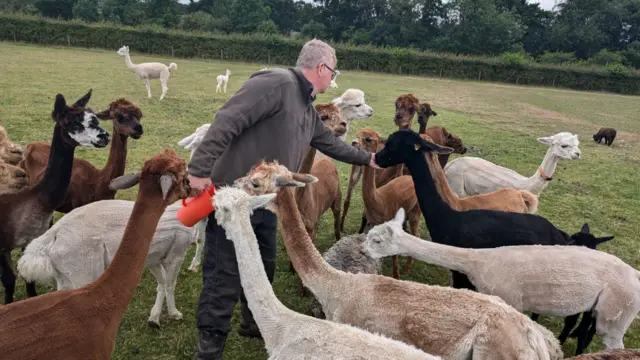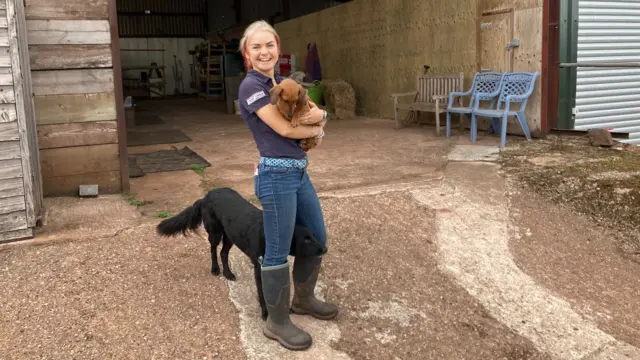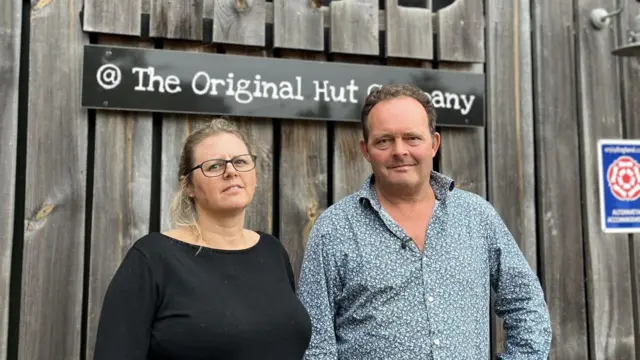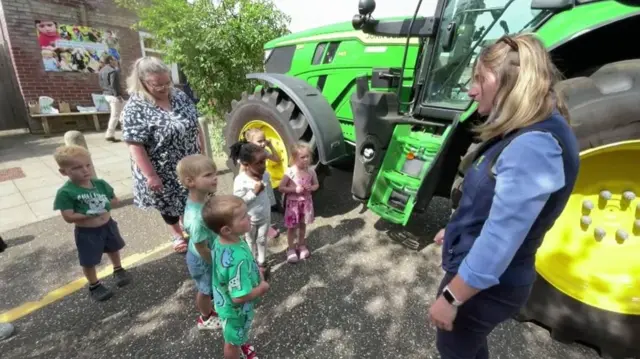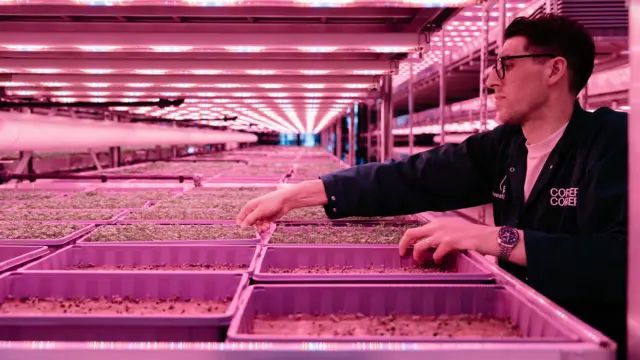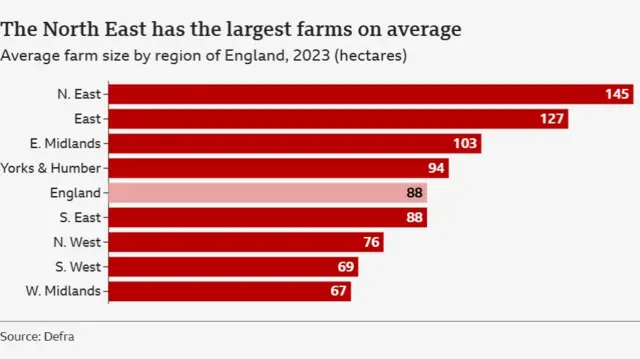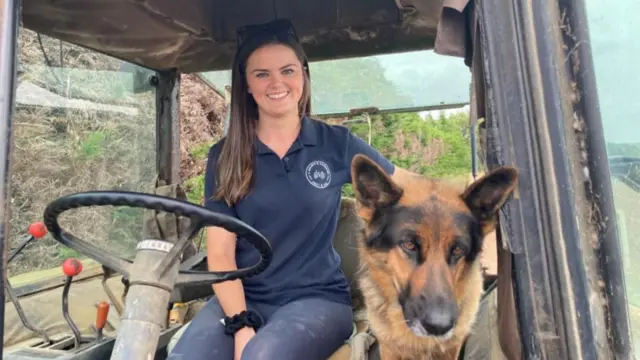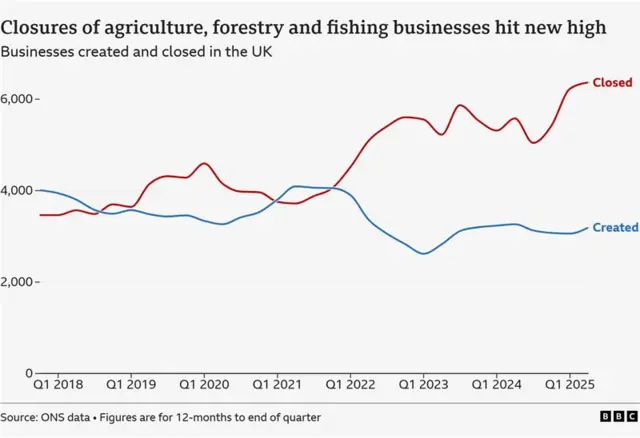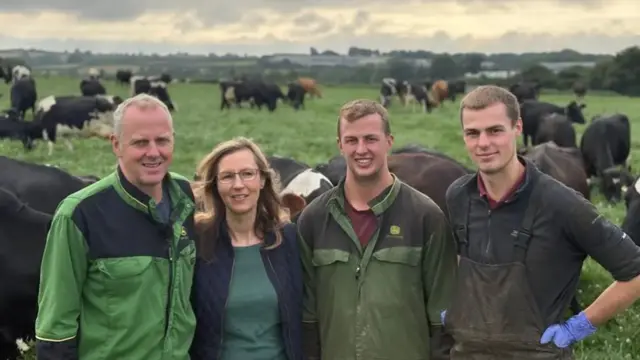Meet the urban farmers teaching about foodpublished at 16:30 BST 7 August
Children growing up in the countryside may be familiar with the outdoors and farming life, but what if you're brought up in the centre of a town or city?
At Nunny’s Farm, based in the heart of a housing estate in Grimsby, the team teaches children about where their food comes from, as well as how to look after pigs, sheep, alpacas and chicken.
Farmer Neil Campbell tells us more about his urban farm and how it all began in the BBC Sounds interview below.
Neil and Jo created the farm to serve the Nunsthorpe estate community in Grimsby

